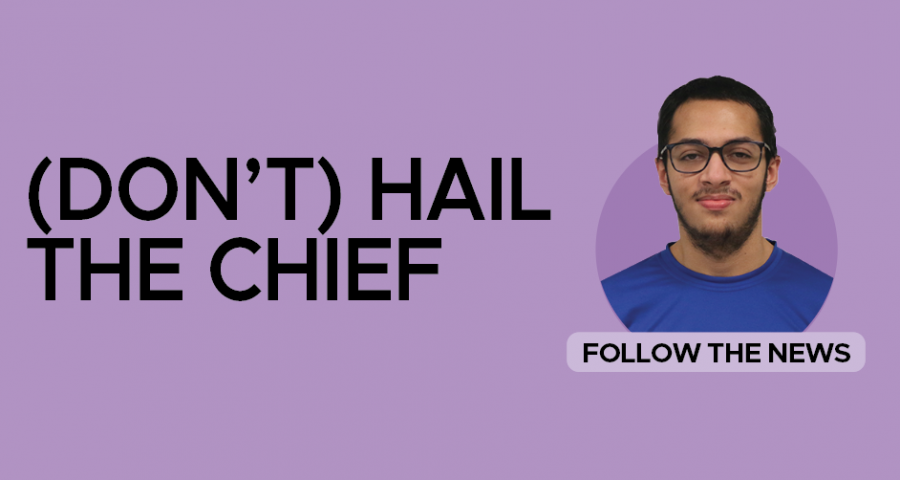The 2020 election is finally in the rearview mirror, and a new administration has taken office. Joe Biden’s first days as president have certainly been eventful; according to NPR, Biden has signed 28 executive orders in his first 14 days in office. With the U.S. battling grave crises, Biden’s actions will lay the foundation for his presidential legacy for good or ill.
That brings me to Presidents’ Day, the holiday commemorating the 45 men who served in the highest office in the land. For the longest time, I never really understood the purpose of this holiday. Many of our presidents have been mediocre or forgettable. The modern presidents have been powerful, but polarizing. In a society where political divides are greater than ever, honoring our presidents seemed like a pretty hollow way to recognize American history. So what does Presidents’ Day really mean?
For me, it all comes back to legacies. As I learned more and more about presidents, the more I realized their impact on all of our lives.
Take Lyndon B. Johnson, president in the 1960s, as an example. At first, I only associated LBJ with the Vietnam War, which he escalated to a horrifying level. However, I later found out that he worked constructively with Martin Luther King Jr. to pass the Civil Rights Act and Voting Rights Act. In many ways, both good (ending segregation) and bad (tragic deaths in war), the LBJ legacy shaped the world we live in today.
It’s tempting to boil down our previous presidents’ accomplishments to a short summary. However, as I learned with LBJ, doing so would gloss over important historical details that continue to impact our society. Regardless of your political beliefs, it is important to have a broad, complex perspective on our previous leaders.
I find that President’s Day should be a day to celebrate the accomplishments that our prior presidents had while in office. However, it should not be a day when we idolize them. Even the presidents on Mt. Rushmore had their failings: Washington and Jefferson owned slaves, Theodore Roosevelt considered foreigners “uncivilized,” and Lincoln jailed dissenters without a trial during the Civil War. Blindly idolizing presidents can be destructive to democracy as it abandons self-thought and opinion.
Overall, on this Presidents’ Day, we should all try to look at some of our previous leaders through a wider lens. We should tout their triumphs and lament their mistakes, and appreciate their impact. It is also vital to train our eye toward the current administration with an open mind and a rational outlook. Doing so allows us to fulfill our civic duties.
The views in this column do not necessarily reflect the views of the HiLite staff. Reach Ashwin Prasad at aprasad@hilite.org. To read more of his works, click here. To see the past issues of the HiLite, click here.

































![AI in films like "The Brutalist" is convenient, but shouldn’t take priority [opinion]](https://hilite.org/wp-content/uploads/2025/02/catherine-cover-1200x471.jpg)










































![Review: “The Immortal Soul Salvage Yard:” A criminally underrated poetry collection [MUSE]](https://hilite.org/wp-content/uploads/2025/03/71cju6TvqmL._AC_UF10001000_QL80_.jpg)
![Review: "Dog Man" is Unapologetically Chaotic [MUSE]](https://hilite.org/wp-content/uploads/2025/03/dogman-1200x700.jpg)
![Review: "Ne Zha 2": The WeChat family reunion I didn’t know I needed [MUSE]](https://hilite.org/wp-content/uploads/2025/03/unnamed-4.png)
![Review in Print: Maripaz Villar brings a delightfully unique style to the world of WEBTOON [MUSE]](https://hilite.org/wp-content/uploads/2023/12/maripazcover-1200x960.jpg)
![Review: “The Sword of Kaigen” is a masterpiece [MUSE]](https://hilite.org/wp-content/uploads/2023/11/Screenshot-2023-11-26-201051.png)
![Review: Gateron Oil Kings, great linear switches, okay price [MUSE]](https://hilite.org/wp-content/uploads/2023/11/Screenshot-2023-11-26-200553.png)
![Review: “A Haunting in Venice” is a significant improvement from other Agatha Christie adaptations [MUSE]](https://hilite.org/wp-content/uploads/2023/11/e7ee2938a6d422669771bce6d8088521.jpg)
![Review: A Thanksgiving story from elementary school, still just as interesting [MUSE]](https://hilite.org/wp-content/uploads/2023/11/Screenshot-2023-11-26-195514-987x1200.png)
![Review: "When I Fly Towards You", cute, uplifting youth drama [MUSE]](https://hilite.org/wp-content/uploads/2023/09/When-I-Fly-Towards-You-Chinese-drama.png)
![Postcards from Muse: Hawaii Travel Diary [MUSE]](https://hilite.org/wp-content/uploads/2023/09/My-project-1-1200x1200.jpg)
![Review: "Ladybug & Cat Noir: The Movie," departure from original show [MUSE]](https://hilite.org/wp-content/uploads/2023/09/Ladybug__Cat_Noir_-_The_Movie_poster.jpg)
![Review in Print: "Hidden Love" is the cute, uplifting drama everyone needs [MUSE]](https://hilite.org/wp-content/uploads/2023/09/hiddenlovecover-e1693597208225-1030x1200.png)
![Review in Print: "Heartstopper" is the heartwarming queer romance we all need [MUSE]](https://hilite.org/wp-content/uploads/2023/08/museheartstoppercover-1200x654.png)




